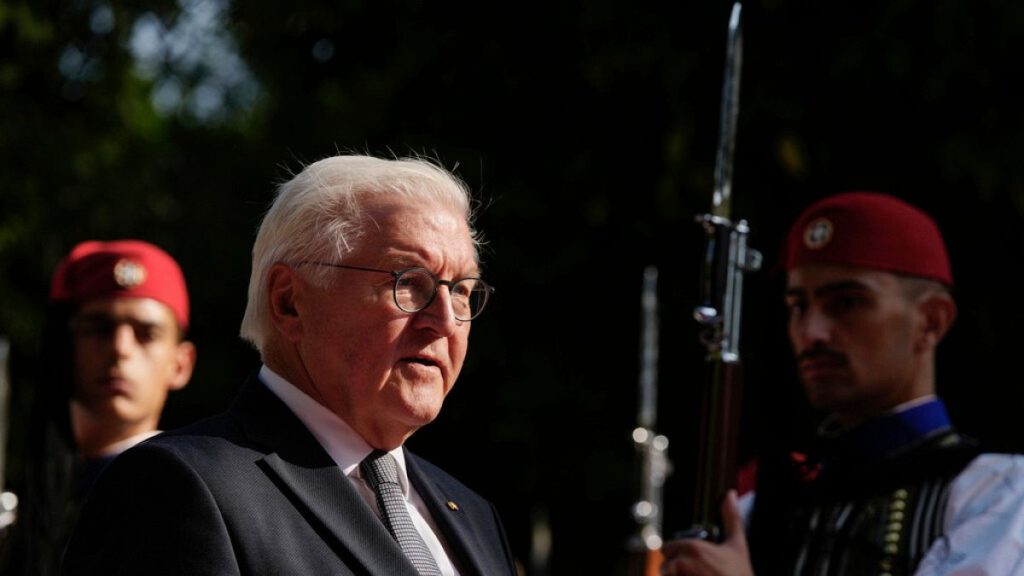German President Frank-Walter Steinmeier has agreed to dissolve parliament at the request of Chancellor Olaf Scholz, with new elections set for 23 February. This decision was made after Scholz’s ruling coalition collapsed, leading to a failed confidence vote in December. The coalition, known as the “traffic light” coalition, consisted of the Free Democratic Party (FDP), Social Democratic Party (SPD), and the Green party. Internal divisions within the coalition came to a head over disputes about the country’s budget. As per Germany’s constitution, the Bundestag will continue functioning until a new government is selected in February. During his announcement, Steinmeier emphasized the need for a stable government capable of taking action, especially in times of uncertainty marked by economic challenges, conflicts in the Middle East and Ukraine, and pressing issues related to immigration and climate change.
Looking ahead to the February election, the latest polls suggest that the Christian Democratic Union (CDU) is likely to win with 31% of the vote. The far-right Alternative for Germany (AfD) is currently in second place with 19%, followed by the SPD with 15% and the Greens with 14%. It remains unclear which party the CDU may seek to form a coalition with in the event of a victory. A key focus of the campaign will be Germany’s economy, immigration policies, and the ongoing war in Ukraine. Additionally, the country is still reeling from a recent attack on a Christmas market in Magdeburg that left five people dead and hundreds injured. Authorities are investigating the incident, with concerns raised about the suspect’s motives and background. The attack has sparked debates about extremism and social cohesion within German society, with various political parties voicing their concerns and perspectives on the issue.
In response to the attack and potential influences on the upcoming election campaign, President Steinmeier condemned any attempts at defamation, intimidation, and violence. He called for a campaign conducted with respect and decency, emphasizing the importance of addressing the challenges facing Germany in a thoughtful and inclusive manner. The Green party’s Chancellor candidate, Robert Habeck, expressed concerns about the spread of distrust and discrimination against Muslims and immigrants in the aftermath of the attack. The AfD, on the other hand, held a rally in Magdeburg, attributing the incident to Islamist extremism and calling for stricter security measures. The political discourse surrounding the attack reflects the wider debates and divisions within German society about issues of security, immigration, and national identity.
As the country prepares for the upcoming election, Chancellor Olaf Scholz faces the challenge of leading his party, the SPD, through a tumultuous period of political uncertainty. The collapse of the ruling coalition has brought into question the future direction of German politics and the potential for new alliances and policies. The CDU, under the leadership of Friedrich Merz, is positioning itself as a frontrunner in the election, focusing on issues such as economy, immigration, and national security. The AfD’s presence in the polls underscores the ongoing influence of far-right politics in Germany, raising concerns about social cohesion and extremism. Ultimately, the February election will serve as a pivotal moment in shaping Germany’s political landscape and addressing the emerging challenges facing the country.













